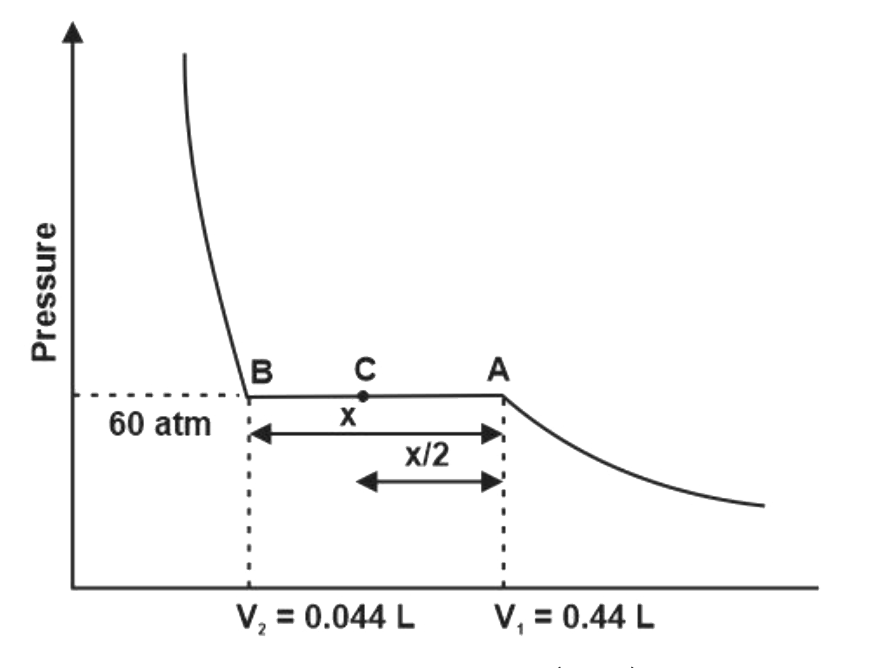Maximum basic in gas phase is ?
The correct Answer is:D
To determine which compound is the most basic in the gas phase among the given options, we will analyze the basicity of the amines based on the inductive effect of the alkyl groups attached to the nitrogen atom.
1. Understanding Basicity in Amines:
Basicity in amines is primarily influenced by the availability of the lone pair of electrons on the nitrogen atom. The more electron-donating groups attached to the nitrogen, the more available the lone pair becomes for donation, thus increasing basicity.
2. Identifying the Compounds:
The question provides four compounds: ammonia (NH3) and three amines with varying numbers of alkyl groups (ethyl groups in this case). We will denote them as follows:
- A: Ammonia (NH3)
- B: Primary amine (one ethyl group)
- C: Secondary amine (two ethyl groups)
- D: Tertiary amine (three ethyl groups)
3. Evaluating the Inductive Effect:
- Alkyl groups exhibit a +I (positive inductive) effect, which means they donate electron density towards the nitrogen atom.
- The more alkyl groups attached to the nitrogen, the greater the electron donation and the stronger the basicity.
4. Comparing the Basicity:
- Ammonia (A): No alkyl groups, so it has the least basicity.
- Primary Amine (B): One ethyl group provides some +I effect, increasing basicity compared to ammonia.
- Secondary Amine (C): Two ethyl groups provide more +I effect, thus increasing basicity further.
- Tertiary Amine (D): Three ethyl groups provide the maximum +I effect, making it the most basic.
5. Conclusion:
In the gas phase, steric hindrance is not a significant factor, so we only consider the inductive effect. Therefore, the tertiary amine (D) with three ethyl groups is the most basic.
Final Answer:
The compound that is the most basic in the gas phase is Option D (Tertiary Amine).
---
Basicity in amines is primarily influenced by the availability of the lone pair of electrons on the nitrogen atom. The more electron-donating groups attached to the nitrogen, the more available the lone pair becomes for donation, thus increasing basicity.
The question provides four compounds: ammonia (NH3) and three amines with varying numbers of alkyl groups (ethyl groups in this case). We will denote them as follows:
- A: Ammonia (NH3)
- B: Primary amine (one ethyl group)
- C: Secondary amine (two ethyl groups)
- D: Tertiary amine (three ethyl groups)
- Alkyl groups exhibit a +I (positive inductive) effect, which means they donate electron density towards the nitrogen atom.
- The more alkyl groups attached to the nitrogen, the greater the electron donation and the stronger the basicity.
- Ammonia (A): No alkyl groups, so it has the least basicity.
- Primary Amine (B): One ethyl group provides some +I effect, increasing basicity compared to ammonia.
- Secondary Amine (C): Two ethyl groups provide more +I effect, thus increasing basicity further.
- Tertiary Amine (D): Three ethyl groups provide the maximum +I effect, making it the most basic.
In the gas phase, steric hindrance is not a significant factor, so we only consider the inductive effect. Therefore, the tertiary amine (D) with three ethyl groups is the most basic.
The compound that is the most basic in the gas phase is Option D (Tertiary Amine).
Topper's Solved these Questions
- ALKENE, ALKANE & ALKYNE Book:ALLENChapter:ALKENE, ALKANE & ALKYNE Exercise:EXERCISE-3
Explore 99 Videos
- ALKENE, ALKANE & ALKYNE Book:ALLENChapter:ALKENE, ALKANE & ALKYNE Exercise:EXERCISE-4(A)
Explore 10 Videos
- ALKENE, ALKANE & ALKYNE Book:ALLENChapter:ALKENE, ALKANE & ALKYNE Exercise:EXERCISE-1
Explore 119 Videos
- AIIMS 2019Book:ALLENChapter:AIIMS 2019Exercise:CHEMISTRY
Explore 40 Videos
- ALKYL AND ARYL HALIDEBook:ALLENChapter:ALKYL AND ARYL HALIDEExercise:EXERCISE-05 (B)
Explore 35 Videos
Similar Questions
Which of the following shows the correct order of decreasing basicity in gas phase?
View Solutionwrite the correct order of basic strength in gas phase is
(I) CH3−NH2 (II) (CH3)2NH
(III) (CH3)3N (IV) NH3
View SolutionThe change in hybridization of aluminium when Al2Cl6 decomposes in the gas phase is :
View SolutionThe phenomenon in which water molecules are atttracted to each other in the liquid phase more than to water in the gas phase, is known as
View SolutionA : Dihedral angle of H2O2 in gas phase is greater than in solid phase.
R : H2O2 has planar structure.
View SolutionAmoung the hydrides of Group - 15 elements , which have the :
(a) lowest boiling point ? (ii) maximum basic character ?
(iii) highest bond angle ?
View SolutionCO2 gas is liquefaction for 1 mole of CO2.

Then which statement is (are) correct in gaseous phase will
(I) The maximum density of gas is 0.1 gm/ml
(II) The density of liquid CO2 is 1 g/ml at 60 atm.
(III) At point C 50% of CO2 is liquefied.
(IV) The compressibility factor of gas at 27∘C is always less than 1.
Which of the above is/are correct
View SolutionThe number of chromosomes in G1 phase is 36, the number of chromosomes in S phase is
View SolutionA gas deviates maximum from the ideal gas laws at
View SolutionMaximum filling of the ventricles takes place during which phase of the cardiac cycle?
View Solution